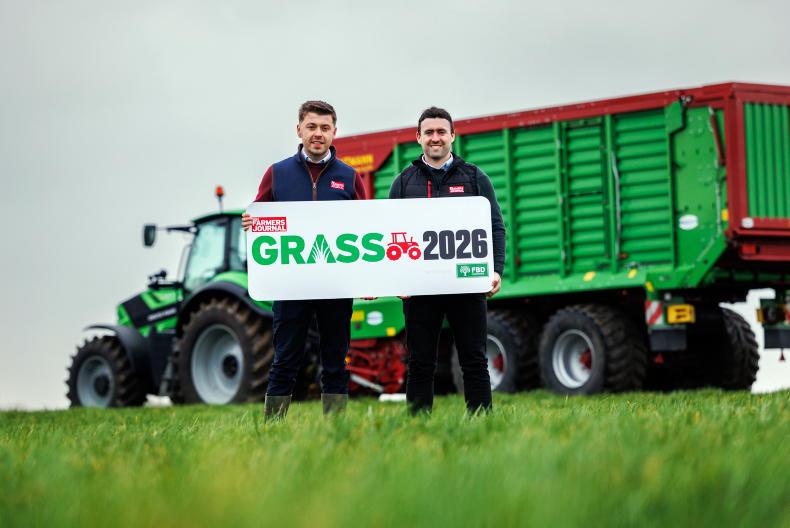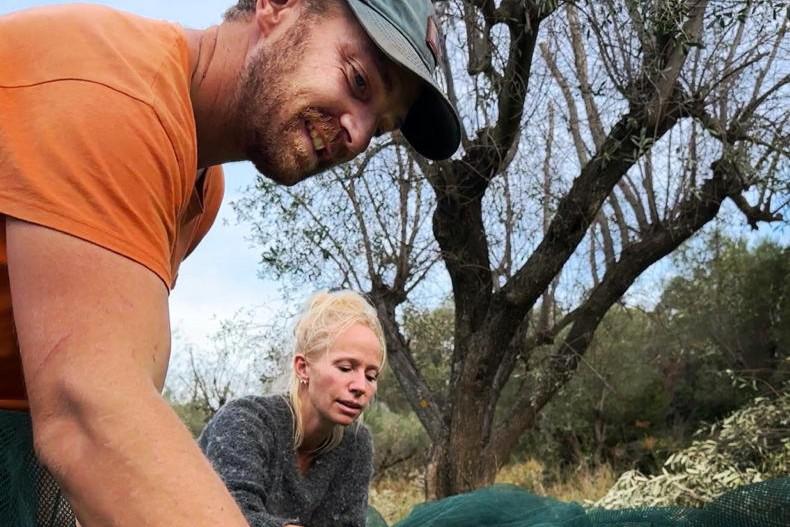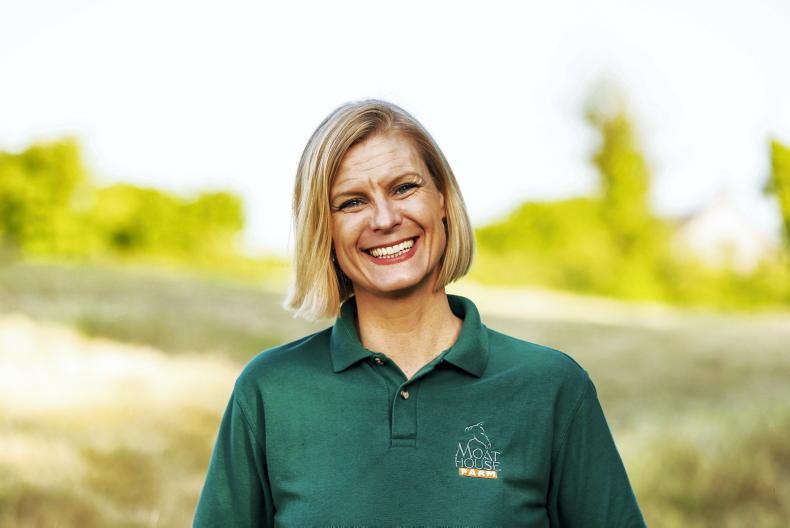The organisers of last week’s IFA forestry conference chose a wide range of speakers to address topics as diverse as forest carbon, agroforestry and the new forestry programme.
However, negative issues, in particular ash dieback and licensing, dominated conference proceedings.
In a wide ranging opening address, IFA president Tim Cullinan placed strong emphasis on the need for compensation for ash plantation owners. He said many farmers are now turning away from forestry, as “the risks are too high”.
Ash dieback
Described as “the elephant in the room” by Simon White, ash dieback unleashed a barrage of criticism from the audience, which was directed at Minister of State Pippa Hackett and her Department of Agriculture, Food and the Marine (DAFM) officials, but especially at Minister Charlie McConalogue, for his recent announcement ruling out compensation.
White, vice chair of the IFA farm forestry committee and chair of Limerick and Tipperary Woodland Ltd, said that instead of helping to solve the problem, DAFM had “made forest management a nightmare for ash growers”.
White left the podium to prolonged applause and a standing ovation from most attendees. Ash plantation owners who were present repeatedly voiced their anger over the lack of compensation throughout the conference.
Pippa Hackett, Minister of State, told the attendance that she was committed to resolving the ash dieback issue.
She said she had “tasked an independent group to review Department supports”, and to deliver its recommendations on these supports “within three months”.
Tim Cullinan voiced his concerns about the infrastructure to deliver the new programme after years of underperformance.
“We have seen many skilled foresters and contractors leave the industry, which is hugely worrying to the delivery of the strategic vision for the sector,” he said.
This view was echoed by a number of people in the audience, in particular Michael Fahy, who said his contracting business had collapsed as a result of licence delays, but in particular because of the DAFM’s failure to address ash dieback.
In an emotional address, he said his valuable machinery “was lying idle and rusting”, as all his harvesting and machine operators had left his company for more secure work in other sectors.
IFA president Tim Cullinan outlined the challenges in achieving an 8,000ha afforestation programme among farmers, especially after “the sharp decline in farmer planting over recent decades”.
Ash dieback unleashed a barrage of criticism from the audience, directed at Minister of State Pippa Hackett ... but especially at Minister Charlie McConalogue, for his recent announcement ruling out compensation
He praised aspects of the new forestry programme. “The return to 20-year premium payments for farmers is a positive step and has generated renewed interest in the programme,” he said.
“However, the reality is that many farmers no longer view forestry as a safe investment option, as the risks associated with committing their land in perpetuity have become too great.
"The replanting obligation is the single greatest barrier to planting and must be reviewed if planting targets are to be met.”
Cullinan called for an “ecosystem services payment” for the loss in timber revenue where forests are required to carry non-productive species and biodiversity areas beyond the 20-year forest premium.
He argued that the licensing system burdened farmers with excessive regulations and costs. “We urgently need a proportionate regulatory framework that reflects the size and type of operation, guaranteeing timely decisions are reached within the legally required four-month timeframe.”
His strongest criticism was directed at the minister and her officials for their treatment of forest owners affected by the ash dieback. “This has been hugely damaging to farmer confidence and has made many farmers wary of entering forestry under the current terms and conditions,” he said.
“The IFA will be inputting to the Independent Review of Ash Dieback Scheme announced by Minister Hackett, and will be seeking significant improvements to the current scheme, the grant rates and full recognition of the financial loss.”
“Let me assure the Government that the outcome of the review and the recognition of the financial loss of farmers affected by ash dieback will be seen as a benchmark of their commitment to farmer planting, and key to restoring farmer confidence in forestry.”
UK shows the way in forest carbon
A number of positives emerged on the role of forests and carbon at the conference.
First, the contentious question of carbon ownership has been clarified by Fergus Moore, DAFM. “If landowners wish to monetise the value of their carbon they are free to do so,” he said. However, ownership has no tangible benefits until Ireland has a forest carbon code to allow carbon trading.
Second, there are major long-term benefits in forest carbon trading, as outlined by Dr Pat Snowdon, Head of Economics at Scottish Forestry. The UK Forestry Commission Woodland Carbon Code (WCC), which was launched in 2011, has been managed by Scottish Forestry since 2019.
There are lessons for Ireland in Scotland’s performance, as it plans to plant 75% of the UK’s 18,000ha afforestation programme
While UK forestry (like Ireland’s) relies on state supports, “additional private finance” is achieved “through rapid expansion in the number of woodland creation projects under the WCC,” maintained Dr Snowdon.
Already, “451 projects have been validated”, amounting to “24,344ha of woodlands which will sequester 8.5m tonnes of CO2 over their lifetime,” he said. “There are 1,465 projects comprising 46,055ha of woodland in the pipeline, which will sequester 14.4m tonnes of CO2.”
The response from the private sector is impressive, with “500 corporate buyers in the UK”.
There are lessons for Ireland in Scotland’s performance, as it plans to plant 75% of the UK’s 18,000ha afforestation programme.
A similar target for Ireland would make forestry a major contributor to reducing Ireland’s greenhouse gas (GHG) emissions, based on data presented to the conference by Fergus Moore.
The WCC is now exploring further areas of expansion, including technology for improved and more frequent monitoring of the code, and creating a carbon price index. Other areas being examined include further risk mitigation and possible insurance for carbon credits.
Tom Houlihan of Teagasc outlined that much of the groundwork in creating an Irish WCC has been carried out already, such as the development of an Irish forest carbon tool. However, we are well behind the UK, which has a 12-year head start on Ireland in delivering a WCC.
Other issues debated at the conference included agroforestry, criticism of the Coillte Farmer Partnership, private commercial investment in forestry and the commercial feasibility of the new forestry programme.
Private forestry
Tim Cullinan praised the Government’s €1.3bn commitment to forestry, but said “the drive to meet our afforestation targets, must not be at any cost”.
He said the IFA cannot support a situation where a large proportion of the funding announced “is re-directed away from farmers and rural communities and instead paid out to investors”.
Marina Conway, CEO Western Forestry Co-op, said she was opposed to the current level of grants and premium payments for private investors.
“Farmers are the future of forestry in Ireland,” she said. “Farmers can now receive multiple payment schemes on the same land, so should hold on to their land and forests.”
New forestry programme
Andrew O’Carroll, Kilkenny representative on the IFA farm forestry group, said farmers had two choices when establishing forests:
“Those who wished to plant native or broadleaf forests, without the expectation of an economic return, had attractive supports. Those who wanted an economic return had limited options, because they had to leave 35% of the planting area as unproductive.”
In addition, he said “the replanting obligation is now a major barrier”. O’Carroll, as a former winner of the RDS forest award and a strong advocate of farmer forestry, believes that the current model is under pressure.
“The replanting obligation is unattractive, especially for farmers who are now availing of 10-year leases – with the freedom to renew or continue farming at the end of the lease period,” he said.
“Annual lease payments from dairy farmers – up to €1,100/ha – are a major incentive, especially at a time when the legacy of ash dieback hasn’t been addressed.”
The organisers of last week’s IFA forestry conference chose a wide range of speakers to address topics as diverse as forest carbon, agroforestry and the new forestry programme.
However, negative issues, in particular ash dieback and licensing, dominated conference proceedings.
In a wide ranging opening address, IFA president Tim Cullinan placed strong emphasis on the need for compensation for ash plantation owners. He said many farmers are now turning away from forestry, as “the risks are too high”.
Ash dieback
Described as “the elephant in the room” by Simon White, ash dieback unleashed a barrage of criticism from the audience, which was directed at Minister of State Pippa Hackett and her Department of Agriculture, Food and the Marine (DAFM) officials, but especially at Minister Charlie McConalogue, for his recent announcement ruling out compensation.
White, vice chair of the IFA farm forestry committee and chair of Limerick and Tipperary Woodland Ltd, said that instead of helping to solve the problem, DAFM had “made forest management a nightmare for ash growers”.
White left the podium to prolonged applause and a standing ovation from most attendees. Ash plantation owners who were present repeatedly voiced their anger over the lack of compensation throughout the conference.
Pippa Hackett, Minister of State, told the attendance that she was committed to resolving the ash dieback issue.
She said she had “tasked an independent group to review Department supports”, and to deliver its recommendations on these supports “within three months”.
Tim Cullinan voiced his concerns about the infrastructure to deliver the new programme after years of underperformance.
“We have seen many skilled foresters and contractors leave the industry, which is hugely worrying to the delivery of the strategic vision for the sector,” he said.
This view was echoed by a number of people in the audience, in particular Michael Fahy, who said his contracting business had collapsed as a result of licence delays, but in particular because of the DAFM’s failure to address ash dieback.
In an emotional address, he said his valuable machinery “was lying idle and rusting”, as all his harvesting and machine operators had left his company for more secure work in other sectors.
IFA president Tim Cullinan outlined the challenges in achieving an 8,000ha afforestation programme among farmers, especially after “the sharp decline in farmer planting over recent decades”.
Ash dieback unleashed a barrage of criticism from the audience, directed at Minister of State Pippa Hackett ... but especially at Minister Charlie McConalogue, for his recent announcement ruling out compensation
He praised aspects of the new forestry programme. “The return to 20-year premium payments for farmers is a positive step and has generated renewed interest in the programme,” he said.
“However, the reality is that many farmers no longer view forestry as a safe investment option, as the risks associated with committing their land in perpetuity have become too great.
"The replanting obligation is the single greatest barrier to planting and must be reviewed if planting targets are to be met.”
Cullinan called for an “ecosystem services payment” for the loss in timber revenue where forests are required to carry non-productive species and biodiversity areas beyond the 20-year forest premium.
He argued that the licensing system burdened farmers with excessive regulations and costs. “We urgently need a proportionate regulatory framework that reflects the size and type of operation, guaranteeing timely decisions are reached within the legally required four-month timeframe.”
His strongest criticism was directed at the minister and her officials for their treatment of forest owners affected by the ash dieback. “This has been hugely damaging to farmer confidence and has made many farmers wary of entering forestry under the current terms and conditions,” he said.
“The IFA will be inputting to the Independent Review of Ash Dieback Scheme announced by Minister Hackett, and will be seeking significant improvements to the current scheme, the grant rates and full recognition of the financial loss.”
“Let me assure the Government that the outcome of the review and the recognition of the financial loss of farmers affected by ash dieback will be seen as a benchmark of their commitment to farmer planting, and key to restoring farmer confidence in forestry.”
UK shows the way in forest carbon
A number of positives emerged on the role of forests and carbon at the conference.
First, the contentious question of carbon ownership has been clarified by Fergus Moore, DAFM. “If landowners wish to monetise the value of their carbon they are free to do so,” he said. However, ownership has no tangible benefits until Ireland has a forest carbon code to allow carbon trading.
Second, there are major long-term benefits in forest carbon trading, as outlined by Dr Pat Snowdon, Head of Economics at Scottish Forestry. The UK Forestry Commission Woodland Carbon Code (WCC), which was launched in 2011, has been managed by Scottish Forestry since 2019.
There are lessons for Ireland in Scotland’s performance, as it plans to plant 75% of the UK’s 18,000ha afforestation programme
While UK forestry (like Ireland’s) relies on state supports, “additional private finance” is achieved “through rapid expansion in the number of woodland creation projects under the WCC,” maintained Dr Snowdon.
Already, “451 projects have been validated”, amounting to “24,344ha of woodlands which will sequester 8.5m tonnes of CO2 over their lifetime,” he said. “There are 1,465 projects comprising 46,055ha of woodland in the pipeline, which will sequester 14.4m tonnes of CO2.”
The response from the private sector is impressive, with “500 corporate buyers in the UK”.
There are lessons for Ireland in Scotland’s performance, as it plans to plant 75% of the UK’s 18,000ha afforestation programme.
A similar target for Ireland would make forestry a major contributor to reducing Ireland’s greenhouse gas (GHG) emissions, based on data presented to the conference by Fergus Moore.
The WCC is now exploring further areas of expansion, including technology for improved and more frequent monitoring of the code, and creating a carbon price index. Other areas being examined include further risk mitigation and possible insurance for carbon credits.
Tom Houlihan of Teagasc outlined that much of the groundwork in creating an Irish WCC has been carried out already, such as the development of an Irish forest carbon tool. However, we are well behind the UK, which has a 12-year head start on Ireland in delivering a WCC.
Other issues debated at the conference included agroforestry, criticism of the Coillte Farmer Partnership, private commercial investment in forestry and the commercial feasibility of the new forestry programme.
Private forestry
Tim Cullinan praised the Government’s €1.3bn commitment to forestry, but said “the drive to meet our afforestation targets, must not be at any cost”.
He said the IFA cannot support a situation where a large proportion of the funding announced “is re-directed away from farmers and rural communities and instead paid out to investors”.
Marina Conway, CEO Western Forestry Co-op, said she was opposed to the current level of grants and premium payments for private investors.
“Farmers are the future of forestry in Ireland,” she said. “Farmers can now receive multiple payment schemes on the same land, so should hold on to their land and forests.”
New forestry programme
Andrew O’Carroll, Kilkenny representative on the IFA farm forestry group, said farmers had two choices when establishing forests:
“Those who wished to plant native or broadleaf forests, without the expectation of an economic return, had attractive supports. Those who wanted an economic return had limited options, because they had to leave 35% of the planting area as unproductive.”
In addition, he said “the replanting obligation is now a major barrier”. O’Carroll, as a former winner of the RDS forest award and a strong advocate of farmer forestry, believes that the current model is under pressure.
“The replanting obligation is unattractive, especially for farmers who are now availing of 10-year leases – with the freedom to renew or continue farming at the end of the lease period,” he said.
“Annual lease payments from dairy farmers – up to €1,100/ha – are a major incentive, especially at a time when the legacy of ash dieback hasn’t been addressed.”









SHARING OPTIONS